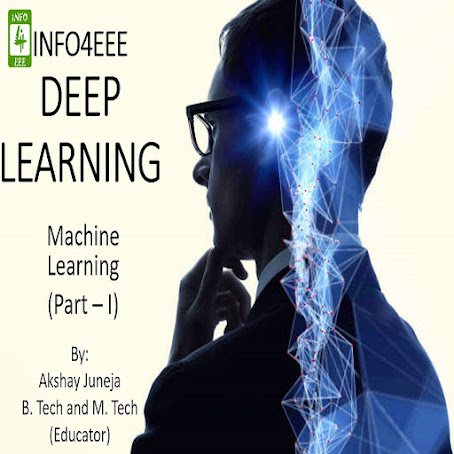What is Machine Learning ? - Course on Deep Learning
HELLO READERS!! It's been a while since the previous article was published. Hope you all are doing well. In today’s article, we will climb the second stair towards deep learning, and that stair is MACHINE LEARNING.
Definition of Machine Learning
In simplest words, Machine Learning is a group of algorithms that teaches a machine anything which humans or animals can learn from their experiences. The information is learned directly from the data instead of complex mathematical equations. More the data available for learning, the better the performance of the machine.
Need of Machine Learning
We might be unaware of the fact that machine learning is already a part of our daily life. These algorithms are used in biomedical fields for diagnosis; Demat and trading; reviews of other customers on items you want to purchase on Flipkart or Amazon; and even the recommendation of songs on your YouTube channel based on search and play history.
Pre-requisites for Machine Learning
To become a professional in Machine Learning, you must have strong knowledge of the most hated subject among students (just kidding), MATHEMATICS. Before some of you decide to stop reading this article further because of the fear of mathematics, let me clarify that you only need to study the basics of these four topics thoroughly which are as follows:
- Probability
- Statistics
- Optimization Techniques
- Visualization
Implementation of Machine Learning
To implement the data, one must choose a programming language and an Integrated Development Environment (IDE).
- Programming languages: Python, Matrix Laboratory (MATLAB), C++, and C.
- IDEs: Spyder, Visual Studio Code, PyCharm, Google Colab, and Jupyter Notebook.
QUESTION ASKED IN INTERVIEW: Out of the above-mentioned four programming languages, which are interpreted and which are compiled?
ANSWER: Python and MATLAB are interpreted. C and C++ are compiled.
 |
| Spyder |
 |
| Visual Studio Code |
 |
| PyCharm |
 |
| Google Colab |
 |
| Jupyter Notebook |
STAY TUNED READERS!! REAL FUN WILL BEGIN FROM NEXT ARTICLE - Types of Machine Learning Algorithms. You can give your feedback about this article of Deep Learning Series and suggestions for future articles in the below-mentioned comment box.





Post a Comment